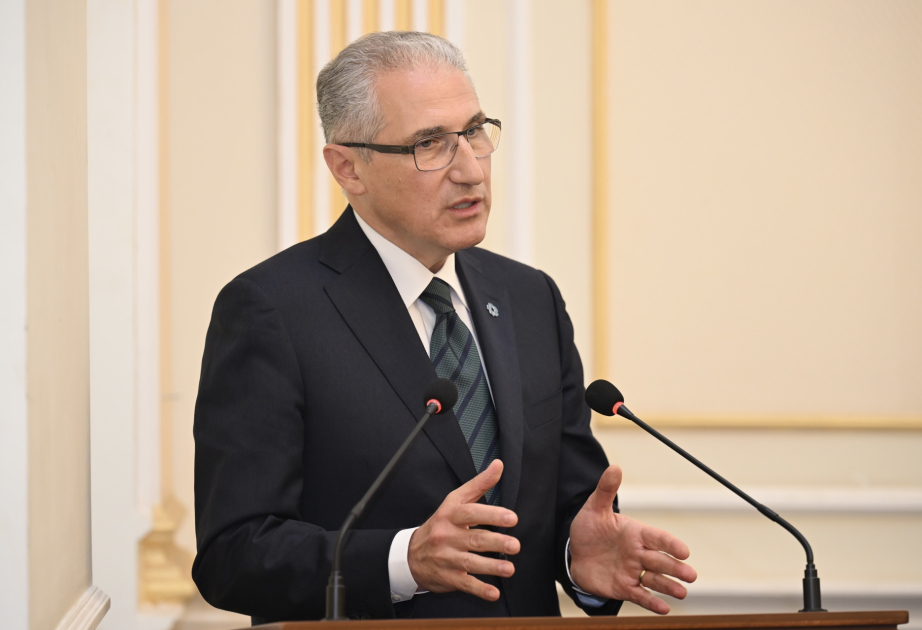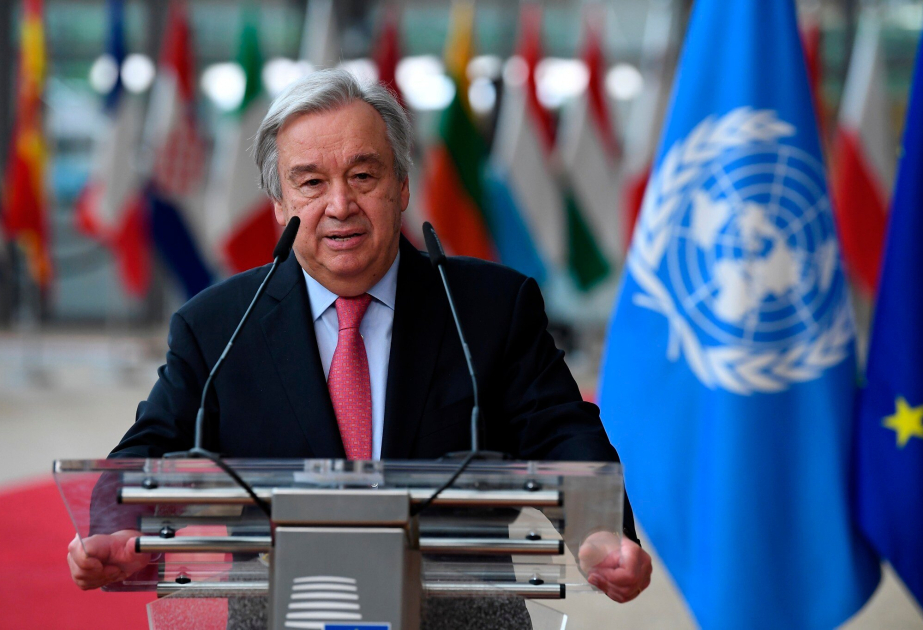Mukhtar Babayev: Environmental problems of the Caspian Sea will be a major focus at COP30

Baku, October 23, AZERTAC
“The close involvement of our scientists in accurately assessing the impacts of climate change is crucial,” said Mukhtar Babayev, Representative of the President of the Republic of Azerbaijan on Climate Issues, in his address at the presentation of the book “COP29: Global and National Challenges, Scientific Tasks.”
In his remarks, he noted the importance of hosting the 29th session of the Conference of the Parties to the UN Framework Convention on Climate Change (COP29) in Azerbaijan, stating that Azerbaijan will continue its activity as the presidency of this prestigious event until November this year.
The President's representative noted that the “Year of Solidarity for a Green World” and the COP29 summit in Azerbaijan are shaping new thinking across political, economic, scientific, and moral fields. To address this, the National Academy of Sciences of Azerbaijan is actively engaged in the COP29 process, recognizing the critical importance of mobilizing the country's scientific potential to meet these challenges.
Noting that the Organizing Committee, approved by the relevant Decree of President Ilham Aliyev, has visited 62 countries over the past two years, Mukhtar Babayev described this not only as a core mission but also as an indicator of the valuable experience Azerbaijan has acquired on the international stage.
Mukhtar Babayev also highlighted the environmental degradation of the Caspian Sea and the decline in its level, saying that during the 2022 Summit of the Caspian Sea Littoral States and the 80th session of the UN General Assembly, the Azerbaijani President stressed the need for joint efforts by the coastal states to address this challenge.
“The Caspian Sea is experiencing a rapid shallowing process due to climate change, which has resulted in a significant decline in water levels since 1995. This has serious consequences for shipping, agriculture, fishing, and ecosystems. The issue was a focus at COP29 and is expected to be a key topic at COP30,” he emphasized.
M. Babayev noted the importance of closely involving international organizations and scientific institutions in in-depth research into environmental threats in the Caspian region and in the implementation of adaptation measures. He added that the main priorities of COP30 are the protection of biodiversity, the safeguarding of the rights of minority peoples, and the development of ethical codes related to climate.
In conclusion, the President's representative emphasized the crucial role of scientists in addressing climate change by accurately assessing its impacts, modeling risks, and developing science-based solutions for the future.











